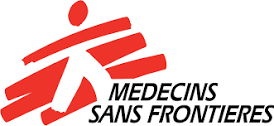DRC: MSF has launched two emergency responses in Fizi, South Kivu
Faced with the urgent needs of people who have been displaced by the latest escalation in fighting in Fizi territory, South Kivu, Democratic Republic of Congo (DRC), as well as the departure of several humanitarian organisations after cuts to international humanitarian funding and health services, Médecins Sans Frontières (MSF) has started two joint emergency responses against malaria and cholera.
Between August and November 2025, MSF teams in Baraka and the village of Lweba have treated 19,000 people with malaria. In an eight-week period between September and October, we also treated 652 patients with cholera.
Resurgence of malaria
In the town of Baraka, and in the surrounding villages, mosquitos proliferate during the rainy season, causing a resurgence in malaria, which indiscriminately affects children and adults.

Aline is the mother of five children. She lives in Mulongwe, in a makeshift camp, south of Fizi. In Baraka hospital, Adelphine, her seven-year-old daughter, is fighting malaria’s symptoms: fever, chills, sweats. Daily life is harsh and uncertain. “We don't have enough to eat because we don't have access to our fields because of the armed conflict. The land, our only resource, has been taken from us.”
MSF is treating people with malaria at Baraka hospital. We have also set up five malaria points to test and treat patients. In the Fizi area, the fight against malaria has been underinvested in for years. No malaria prevention activities have been carried out by the Ministry of Health for three years, and mosquito nets are sorely lacking.
Recent cuts in global health and humanitarian funding are further exacerbating the situation. The national malaria programme, which previously received large sums from the Global Fund, has been significantly weakened. As a result, MSF has become the only major supplier of antimalarial drugs in the region.
MSF struggles to reach people displaced by violence
The tens of thousands of people who are now displaced after recently fleeing fighting are particularly exposed to malaria and cholera. For several months, clashes between the Congolese Army (FARDC) and a coalition of Congolese army-backed militias known as the “Wazalendo”, against the Twigwaneho, the armed wing of the Banyamulenge, have worsened. The fighting is fuelling a long-standing and violent inter-ethnic conflict in the area. In the highlands, on the hills of Fizi, a further 57,000 people who fled the violence remain isolated, surrounded by armed groups (United Nations Office for the Coordination of Humanitarian Affairs). Humanitarian access is impossible at the moment.
In addition, more than 20,000 people have fled the clashes to take refuge in Baraka. For these displaced people, access to healthcare is difficult. Many have no means of transport to reach health centres or malaria points, and the many checkpoints set up by armed groups add complexity in travelling.
“I am very worried for all these people who are unable to reach medical care; they are afraid to pass through the checkpoints of the armed groups in the area,” says Maria Santo, medical team leader in Fizi. “We see patients arriving at the Baraka hospital with malaria that is already severe because it took them far too long to come to us. Recently, a three-year-old child arrived on foot with his grandmother at the hospital in Lweba,” says Santo. “He had severe malaria and was in a state of anaemia because he had to walk 20 kilometres from Bibogobogo.” This is why MSF is preparing to install an additional five new malaria points to bring care closer to people.
MSF is facing many major logistical challenges in its response. During the rainy season, large stretches of the road along lake Tanganika wash away, making the route between Bukavu and Uvira impossible to travel. For now, reaching some areas beyond the town of Fizi – where more people are displaced – is not possible.
On top of this, shifting and dangerous frontlines make it even harder to deliver medicines and supplies. Because MSF cannot move directly from M23 held areas into government held areas, supplies cannot be transported straight from Bukavu to Baraka. Instead, they must take a long, complicated detour through Rwanda, Tanzania, and Burundi. This journey takes several days and significantly slows down the delivery of medicines, such as anti-malaria drugs, and essential supplies, such as malaria tests and hygiene kits for cholera patients.
Cholera outbreak now under control
“While I was at the lake to draw water, I found my two-year-old son vomiting and with diarrhoea, very weak,” says Bokumba, as he sits alongside his son in the Baraka cholera treatment centre. “At first, I thought he was sick because of something he had picked up from the ground and eaten but no, it's cholera. In our community, we mainly drink water from the lake. Tap water is available but very scarce”

Underinvestment in water and sanitation infrastructure is a major contributor to the cholera epidemic.
“The problem is water,” says Dr Christian Rajabu, a doctor at the cholera treatment centre in Baraka, where MSF works. “Many people get their water directly from the lake or rivers, for lack of other alternatives. The health infrastructure is largely inadequate, and basic hygiene measures, such as proper hand washing, are still unknown.”
To curb cholera contamination, MSF has set up 31 water chlorination points in the most exposed neighbourhoods and carried out several activities to raise awareness among the community about hygiene measures to avoid contamination. Additionally, in collaboration with the local water committees, MSF has disinfected and rehabilitated 13 hand pumps. In the eight weeks of our response, the number of cholera cases has dropped by 55 per cent and the epidemic is now under control. But in the long term, urgent state-supported water investments are needed.
Hannah Hoexter
